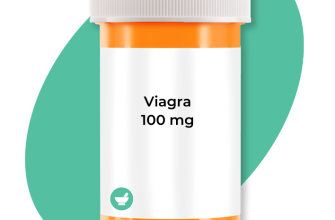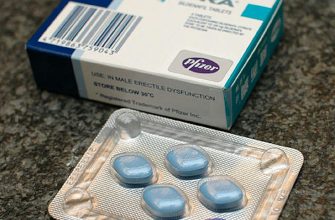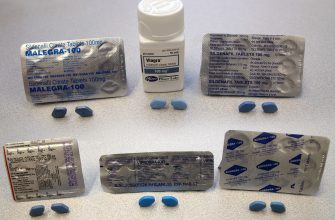No, you can’t combine condoms and Viagra. Attempting to do so offers no enhanced protection or effect and could even be dangerous. Viagra is an oral medication for erectile dysfunction, affecting blood flow. Condoms provide barrier protection against sexually transmitted infections (STIs) and pregnancy.
Reliable STI protection requires using condoms correctly every time you have sex. For erectile dysfunction, consult a doctor. They can assess your condition and recommend appropriate treatment options, which may include Viagra, but only after a proper medical evaluation. Self-treating can be risky and ineffective.
Remember, responsible sexual health requires accurate information and professional guidance. Always use condoms as directed for the best STI and pregnancy prevention. If you experience erectile dysfunction, schedule an appointment with a healthcare provider for proper diagnosis and a tailored treatment plan. Don’t rely on misleading or inaccurate information found online.
Reliable sources for sexual health information include your doctor, Planned Parenthood, and the CDC website. Seek professional advice before starting any new medication.
- Condom Viagra: Separating Fact from Fiction
- Understanding the Misconception of “Condom Viagra”
- Condoms: Their Primary Function
- Viagra: Its Mechanism of Action
- Addressing the Misunderstanding
- The Physiology of Erection and Its Relation to Condoms
- The Role of Condoms in Preventing STIs and Pregnancy
- Erectile Dysfunction: Causes, Symptoms, and Treatments
- Causes of Erectile Dysfunction
- Symptoms and Diagnosis
- Treatment Options
- When to Seek Help
- Common Myths and Misunderstandings About Erectile Dysfunction
- Myth 1: ED is a purely psychological issue.
- Myth 2: ED is a normal part of aging.
- Safe and Effective Treatments for Erectile Dysfunction
- The Importance of Consulting a Healthcare Professional
- Reliable Resources for Sexual Health Information
- Government and Public Health Organizations
- Reputable Online Resources
- Local Health Clinics and Services
- Important Note:
Condom Viagra: Separating Fact from Fiction
No, there’s no such thing as a condom infused with Viagra. Claims suggesting otherwise are misleading and potentially dangerous.
Here’s what you need to know:
- Viagra (sildenafil) is a medication requiring a prescription. It’s taken orally and works internally to treat erectile dysfunction.
- Condoms are designed for contraception and STI prevention. Their material is not compatible with incorporating medication like Viagra. Attempting to do so would compromise their integrity and effectiveness.
- Unverified online sources often promote fraudulent products. Be wary of any product claiming to combine these two unrelated items. Such products are likely ineffective and potentially harmful.
Reliable sources for sexual health information include your doctor, Planned Parenthood, and reputable health organizations. Always consult with a healthcare professional before using any medication, especially if you have underlying health conditions.
Remember:
- Prioritize safe sex practices.
- Use FDA-approved condoms.
- Seek professional medical advice for erectile dysfunction or other sexual health concerns.
Misinformation can be harmful. Make informed decisions about your sexual health.
Understanding the Misconception of “Condom Viagra”
There is no such thing as “Condom Viagra.” This phrase likely refers to the false belief that condoms enhance sexual performance in a way similar to Viagra. Condoms do not contain any medication to affect erections or sexual desire.
Condoms: Their Primary Function
Condoms are designed for birth control and protection against sexually transmitted infections (STIs). They act as a barrier, preventing sperm from entering the vagina and blocking the transmission of pathogens. Their effectiveness relies on proper use and consistent application.
Viagra: Its Mechanism of Action
Viagra, on the other hand, is a medication containing sildenafil citrate. This drug increases blood flow to the penis, facilitating erections. It’s a prescription medication used to treat erectile dysfunction, and its use requires medical consultation.
Addressing the Misunderstanding
The association between condoms and improved sexual performance is purely anecdotal. Any perceived enhancement is likely due to other factors, such as increased confidence resulting from using barrier protection or improved communication and intimacy within the relationship. Always consult a healthcare professional for concerns about sexual health or erectile dysfunction. Relying on misinformation can have serious consequences.
The Physiology of Erection and Its Relation to Condoms
Erections result from increased blood flow into the penis’s erectile tissue. This process begins with sexual stimulation, triggering nerve impulses that relax the smooth muscles in the arteries supplying the penis. This dilation allows a surge of blood into the corpora cavernosa and corpus spongiosum, causing the penis to become firm and erect.
Condoms don’t directly impact the physiological mechanisms of erection. However, several factors related to condom use can indirectly affect erectile function:
- Material and Lubrication: Some men find certain condom materials less comfortable than others, potentially affecting their ability to achieve or maintain an erection. Insufficient lubrication can lead to friction and discomfort, hindering sexual performance.
- Anxiety: Worrying about condom breakage or performance can increase anxiety, contributing to erectile dysfunction. Choosing reliable brands and practicing proper usage can mitigate this.
- Fit: A poorly fitting condom may constrict blood flow, potentially impairing erection. Using appropriately sized condoms is key.
To optimize both sexual experience and safe sex practices:
- Choose Condoms Carefully: Experiment with different brands and materials to find ones that provide comfort and fit well.
- Use Sufficient Lubricant: Water-based lubricants are recommended to reduce friction and enhance comfort.
- Practice Proper Condom Use: This ensures correct placement and reduces the risk of breakage or slippage.
- Address Anxiety: Open communication with your partner can alleviate performance-related anxieties.
Addressing any underlying medical conditions that may contribute to erectile dysfunction is also important. Consult a healthcare professional for any concerns regarding erectile function or safe sex practices.
The Role of Condoms in Preventing STIs and Pregnancy
Condoms are your primary defense against sexually transmitted infections (STIs) and unintended pregnancies. Using them correctly every time you have sex significantly reduces your risk.
STIs: Condoms create a barrier, preventing the transmission of bacteria, viruses, and parasites that cause STIs like chlamydia, gonorrhea, syphilis, and HIV. However, remember that condoms don’t offer complete protection; some STIs can be transmitted through skin-to-skin contact.
Pregnancy: Condoms prevent pregnancy by blocking sperm from reaching an egg. Latex condoms are highly effective when used correctly and consistently. A recent study showed a 98% effectiveness rate with perfect use. However, human error reduces this number; typical use shows effectiveness around 85%.
Proper condom use is key: Always check the expiration date, unroll carefully, leave space at the tip, and withdraw immediately after ejaculation. If the condom breaks, immediately stop sexual activity, use emergency contraception (if applicable), and get tested for STIs.
Types of Condoms: Latex condoms are the most common, but polyurethane and lambskin options exist. Lambskin condoms offer some STI protection but are less effective against pregnancy than latex. Choose the type that suits your needs and preferences. Discuss any concerns with a healthcare provider.
Beyond Condoms: While condoms are highly effective, combining them with other preventative measures, like regular STI testing and open communication with partners, enhances overall sexual health.
Erectile Dysfunction: Causes, Symptoms, and Treatments
Seek medical advice if you experience erectile dysfunction (ED). ED is the inability to achieve or maintain an erection firm enough for satisfactory sexual intercourse. Many factors contribute to ED.
Causes of Erectile Dysfunction
Physical causes include heart disease, high blood pressure, high cholesterol, diabetes, obesity, nerve damage (from injuries or diseases like multiple sclerosis), hormonal imbalances (low testosterone), prostate surgery, and certain medications. Smoking and excessive alcohol consumption are also significant contributors.
Psychological causes include stress, anxiety, depression, and relationship problems. These factors frequently interact with physical causes, complicating the condition. For instance, stress can exacerbate underlying vascular issues, worsening ED symptoms.
Symptoms and Diagnosis
The primary symptom is difficulty achieving or maintaining an erection. The frequency and severity of this difficulty vary widely. Doctors diagnose ED through a combination of medical history review, physical examination, and sometimes blood tests and specialized tests to assess blood flow to the penis.
Treatment Options
Treatment approaches depend on the underlying cause and individual needs. Lifestyle changes, such as weight loss, exercise, smoking cessation, and limiting alcohol intake, often improve symptoms. Oral medications like phosphodiesterase-5 (PDE5) inhibitors (e.g., sildenafil, tadalafil) are commonly prescribed. These medications improve blood flow to the penis. Other medical treatments may include injections directly into the penis or devices that aid in achieving an erection. Psychological therapy can address anxiety and stress contributing to ED.
When to Seek Help
Consult a doctor if you regularly experience problems with erections. Early intervention improves treatment outcomes. Don’t delay seeking professional help; effective solutions exist for most cases of ED.
Common Myths and Misunderstandings About Erectile Dysfunction
Erectile dysfunction (ED) is more common than you think; studies show it affects millions of men. Many misconceptions surround it, leading to unnecessary anxiety and delayed treatment. Let’s dispel some common myths.
Myth 1: ED is a purely psychological issue.
While psychological factors like stress and anxiety can contribute, ED often has a physical basis. Underlying health conditions such as heart disease, diabetes, and high blood pressure frequently cause or worsen ED. Lifestyle choices like smoking and lack of exercise also play significant roles. A proper diagnosis involves considering both physical and psychological factors. Don’t hesitate to seek medical help; a doctor can conduct comprehensive testing to determine the underlying cause.
Myth 2: ED is a normal part of aging.
While the risk of ED increases with age, it’s not an inevitable consequence of getting older. Many older men maintain healthy sexual function. Age is a risk factor, but not a sentence. Addressing any underlying health problems and making healthy lifestyle choices can significantly improve erectile function regardless of age.
Addressing ED effectively involves understanding its root cause. This table summarizes some common causes:
| Category | Examples |
|---|---|
| Physical | Heart disease, diabetes, high blood pressure, high cholesterol, obesity, nerve damage, hormonal imbalances, prostate problems, certain medications |
| Psychological | Stress, anxiety, depression, relationship problems, performance anxiety |
| Lifestyle | Smoking, excessive alcohol consumption, lack of exercise, poor diet |
Consult a healthcare professional for accurate diagnosis and personalized treatment. Various effective treatments are available, including lifestyle changes, medication, and even surgery in some cases. Early intervention is key to managing ED and maintaining a healthy sex life.
Safe and Effective Treatments for Erectile Dysfunction
Consult a doctor. They can accurately diagnose the underlying cause of your erectile dysfunction and recommend the best treatment plan for you.
Lifestyle changes often help. Regular exercise, a balanced diet, and stress management techniques, such as meditation or yoga, can significantly improve erectile function. Quitting smoking is also crucial.
Oral medications, like phosphodiesterase-5 (PDE5) inhibitors (e.g., sildenafil, tadalafil, vardenafil), are a common first-line treatment. These medications increase blood flow to the penis, facilitating an erection. Your doctor will discuss potential side effects and contraindications.
Vacuum erection devices are non-invasive options. They create a vacuum around the penis, drawing blood into it and causing an erection. These are generally safe, but improper use can lead to injury.
Penile injections are another possibility. These injections directly introduce medication into the penis to stimulate an erection. This method is usually reserved for cases where other treatments haven’t been successful. Potential side effects should be discussed with your doctor.
Penile implants are a surgical option for severe cases of erectile dysfunction where other methods have failed. These surgically implanted devices provide rigidity for sexual intercourse. This is a significant procedure with associated risks and recovery time.
Counseling can be beneficial. Addressing psychological factors contributing to erectile dysfunction, such as stress, anxiety, or relationship issues, can improve outcomes and overall well-being.
Always follow your doctor’s instructions. Open communication with your healthcare provider ensures you receive personalized care and manage any potential risks or side effects associated with your treatment.
The Importance of Consulting a Healthcare Professional
Always discuss your sexual health with a doctor or other qualified healthcare provider before using Viagra or any other medication, especially if you have underlying health conditions. This includes heart problems, high blood pressure, or diabetes. Your doctor can assess your suitability for Viagra and help you manage potential side effects.
Combining Viagra with condoms requires careful consideration. Your doctor can discuss potential interactions between Viagra and other medications you may be taking, including those for heart conditions or high blood pressure, ensuring your safety and maximizing the effectiveness of your treatment plan.
Regular checkups are paramount for maintaining overall health. Schedule appointments to discuss your sexual health, address any concerns, and receive personalized advice about safe sexual practices. Your doctor can offer guidance tailored to your specific needs and circumstances.
Open communication with your healthcare provider is key. Don’t hesitate to describe your symptoms, medical history, and lifestyle choices in detail. This allows for a thorough assessment and appropriate recommendations regarding Viagra use and safe sex practices.
Remember, a doctor’s expertise is invaluable in ensuring your health and well-being. Proactive healthcare management minimizes risks and promotes a healthy, fulfilling life.
Reliable Resources for Sexual Health Information
Start with your doctor. They can provide personalized advice and address any concerns you have about sexual health, including safe sex practices and medication interactions. Don’t hesitate to ask questions; clear communication is key.
Government and Public Health Organizations
Planned Parenthood offers comprehensive sexual and reproductive health services, including education and counseling. Their website provides detailed information on various topics. The Centers for Disease Control and Prevention (CDC) website is another excellent resource, offering data-driven insights into sexually transmitted infections (STIs) and prevention strategies. Check your country’s equivalent of the CDC for local information.
Reputable Online Resources
Websites like Scarleteen provide sex education for young adults, covering a wide range of subjects in an approachable and accurate manner. Always verify information against multiple sources to ensure accuracy. Look for websites affiliated with recognized medical institutions or public health organizations.
Local Health Clinics and Services
Many communities offer free or low-cost sexual health clinics. These clinics can provide testing for STIs, contraception, and counseling. Contact your local health department to find nearby options and services. Remember to always prioritize reliable sources for health advice.
Important Note:
Never rely solely on online forums or unverified websites for medical advice. Always seek professional guidance from healthcare providers for accurate and personalized information.








